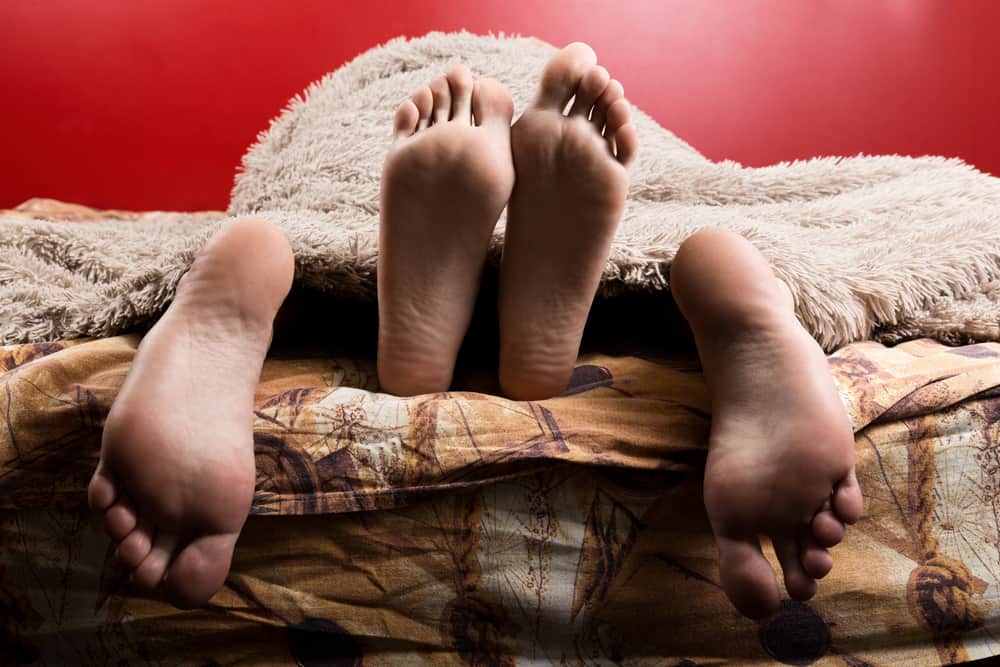Contents:
- Medical Video: The Young Who Die Old: Understanding Progeria and its Link to Normal Aging | Susan Michaelis, Ph.D.
- What is progeria?
- What causes children to experience progeric genetic abnormalities?
- What are the symptoms of a child who has progeria?
- How is this condition diagnosed?
- How is child care with progeria?
Medical Video: The Young Who Die Old: Understanding Progeria and its Link to Normal Aging | Susan Michaelis, Ph.D.
As you get older, your body will experience aging and this is normal. However, there are health problems that cause children to be older than they should be. This condition is also known as progeria. Well, to be clearer about this genetic disorder, consider the following review.
What is progeria?
Progeria or also known as Hutchinson-Gilford Progeria Syndrome (HGPS) is a rare genetic disorder in children that causes the body to grow and age faster. This disease is also known as Benjamin Button disease, which is taken from a fictional story titled The Curious Case of Benjamin Button.
Worldwide, 134 children from 46 countries have progeria. This disease is not inherited from parents to their children, but there is indeed a gene error in the child's body. The average life span of children with this condition is around 13 to 14 years.
What causes children to experience progeric genetic abnormalities?
Progeria is caused by a rare genetic disorder due to a gene mutation error for lamin or progerin. Progerin plays an important role in the cell nucleus (nucleus) in the body. Abnormal progerin gene mutations can cause progerin to break or break easily.
When progerin is damaged, the cells in the body become unstable and can die faster. That is why children with progeria present signs and symptoms of aging that are faster than normal people.
What are the symptoms of a child who has progeria?

Most children with progeria initially born look healthy, but at the age of 10 months or 1 year the symptoms of the disease will be seen. Common signs and symptoms of progeria include:
- Having an abnormal weight
- Has a head that is bigger than body size
- Jaws and face size shrink
- The size of the eyes becomes bigger
- The tip of the nose is thinning
- Small body stature
- Enlarged ear size
- Blood vessels visible on the surface of the skin (spider veins)
- Slow or abnormal teeth growth
- Have a high or shrill voice
- Hair, eyelashes and eyebrows easily fall out
- Loss of body fat and also muscle so the skin relaxes
- Connective tissue in the skin hardens
- Limited range of motion and often experience joint stiffness
Progeria does not affect the child's brain development so thinking skills and motor skills will not be problematic. Children can still sit, stand, and walk like other normal children.
The life span of a child with progeria is very short. As they grow older, they become more susceptible to chronic diseases that should occur in the elderly, such as bone loss, heart attacks, strokes, or hardening of the arteries.
How is this condition diagnosed?
The symptoms of progeria that appear can be an indication of the doctor to determine the diagnosis. However, the doctor will still recommend the patient to take a physical exam, test hearing and vision, measure the pulse and blood pressure, and compare the child's height and weight with other children his age.
Furthermore, patients may need to make further diagnosis with a genetic specialist and take a blood test to see any abnormalities in progerin. All these health tests need to be done by the patient, to avoid misdiagnosis.
Progeria at a glance is almost similar to Wiedemann-Rautenstrauch syndrome and Werner's syndrome. Both of these conditions can cause premature aging in children, only Werner's syndrome can be inherited from parent to child.
How is child care with progeria?
Until now, there is no medicine that can really cure progeria. However, animal-based research has found the potential for cancer drugs, namely FTI (farnesyltransferase inhibitor) or lonafarnib to repair damaged cells. The study showed improvements in bone structure, weight, and the cardiovascular system. The use of this drug can increase the average life span of 1.6 years.
Although there is no specific cure for progeria, some treatments can help alleviate the symptoms of progeria, such as:
- Take medications to lower cholesterol or prevent blood clots so that the risk of a heart attack or stroke can be reduced. In addition, patients will get growth hormone therapy to increase the child's height and weight to be more normal.
- Follow physical therapy to help move the range of patients who have symptoms of stiffness in the joints.
- Perform a surgical process, such as coronary bypass or angioplasty to slow the progression of heart disease.













